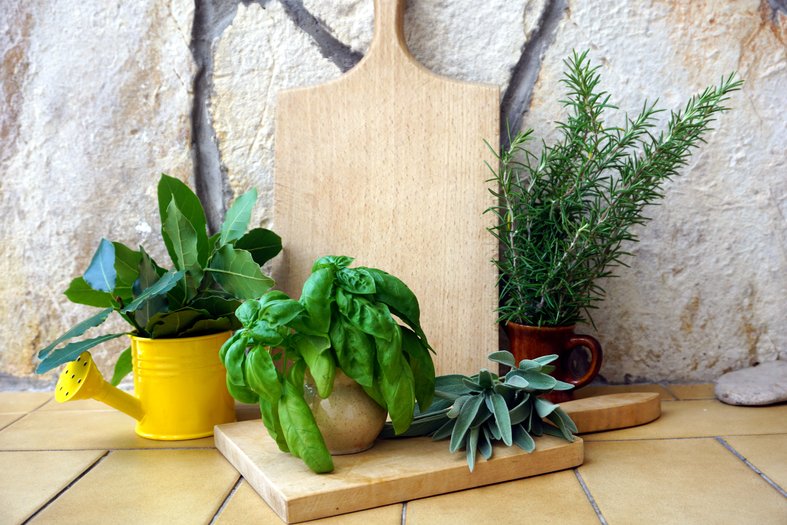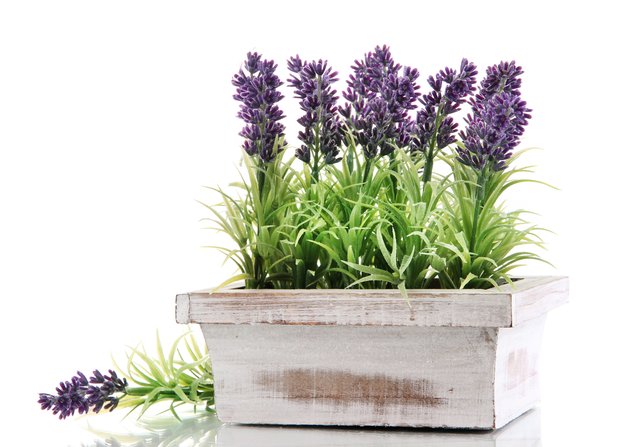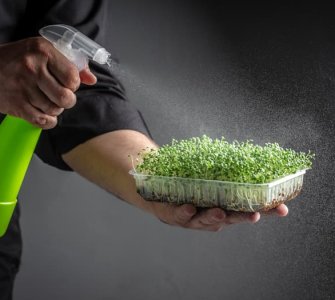We reveal the truth about mosquito repellent plants and just how effective they are. These plants are only as good as the step it takes to activate their special compound to repel mosquitoes.

There’s a place for mosquitoes, and that’s definitely not in my home. I detest relaxing in my living room only to have a mosquito buzzing around me waiting to feast on me. When warm weather arrives, I know it’s time to be strategic in acquiring certain plants and placing them in areas indoors and outdoors to hopefully repel them.
When I began my mosquito repellent plant endeavor years ago, I did a bit of research. I wanted to know what attracts mosquitoes and how to repel them naturally.
Table of Contents
What Attracts Mosquitoes To Humans?
- The Body’s Chemical Makeup
- Excessive uric acid
- Steroids
- Cholesterol
- Sweat
- Skin bacteria
- Type Of Blood
- The top blood type that mosquitoes prefer is Type O.
- Exhalation
- The carbon dioxide released when we exhale beckons mosquitoes.
- Body Heat
- Dark-colored clothing
So, now I understand what attracts them, but how will I keep them out of my house? Being the planet-friendly, gardening, naturalist kind of person I am, I decided to use a plant-based solution.
It was time to dig my heels in and get to researching.
Do Any Plants Really Repel Mosquitoes?
Surprisingly, a lot of info out there claims certain plants repel mosquitoes when evidence-based studies state otherwise. I dug into numerous research studies where I discovered some eye-opening data!
The Malaria Journal scoured numerous scholarly databases in search of just how effective purported repellent plants are against mosquitoes. The majority of these plants were deemed as repellents because of their volatile oils. The plant itself proves to be minimally effective as repellents; however, when its leaves are bruised or crushed, the volatile oils are then released, repelling mosquitoes.
Lavender is one of my favorite plants (roses being my other favorite.) When I began looking into what plants repel mosquitoes, my first hopeful thought was, is lavender a mosquito repellent? I was so hoping it was.

The Most Effective Plant Extracts
Continuing on in the Malaria Journal’s study, they mention which plant extracts (volatiles) proved to be highly effective at repelling mosquitoes. We have listed the plants which fall into indoor plants.
- Citronella grass (Cymbopogon nardus) (known as lemongrass)
- Peppermint (Mentha X piperita)
- Lavender (Lavandula)
- Catnip (Nepeta)
- Geranium (Geranium)
- Jasmine (Jasminum)
- Eucalyptus (broad-leaved, lemon-scented)
- Lemongrass (Cymbopogon Spreng)
- Chamomile (Anthemis L.)
- Rosemary (Rosmarinus L)
- Sandalwood (Santalum L)
Among the above plants, extracts from peppermint and citronella proved to be the most effective mosquito repellents. Yay for me because lavender was on the list of plants that may repel mosquitoes!
Colorado State University Extension also notes in a published article how many plants are purported to be mosquito repellents when the plant itself is not, but it’s volatiles. One particular plant highlighted in the article is the “Mosquito Plant.” This plant is a geranium (Pelargonium citrosum) with a citronella-lemony scent when the leaves are bruised.
The University of Guelph Department of Entomology confirms this plant is not effective at repelling mosquitoes as a plant. It provides minimal repellent if the leaves are crushed.
By the time I had taken all of this information in, I was stumped as to whether or not plants would actually repel mosquitoes. However, I came up with the perfect plan!
Mosquito Repellent Plants Indoors
Given the fact that plants alone don’t emit enough volatiles to repel mosquitoes, I decided to acquire the plants that do (when the leaves are crushed.)
I grow lavender indoors year-round, and when warm weather arrives, I relocate them closer to my patio (indoors.) On the other side of the same patio door (indoors) sits my indoor rosemary plant. Near my front door are a pair of peppermint plants. All of these plants are mature and quite large.
During mosquito season, once a day, when passing through the patio or front doors, I simply rub (bruise) a few of the rosemary needles or lavender flowers to release their volatile oils. These volatiles last about 8 hours, helping deter mosquitoes from entering the house. Besides, having mosquito repellent plants indoors adds a lovely aromatic element which I enjoy.
Plants That Do Well Indoors
Not all mosquito repellent plants listed in the Malaria Journal would do well indoors. Some are intended for outdoor specimens.
Indoor Plants
- Lavender
- Basil
- Peppermint
- Rosemary
- Chamomile
- Catnip
- Geranium
Outdoor Plants
- Pine
- Citronella (lemongrass)
- Indian Rosewood
- Sandalwood
- Eucalyptus
- Jasmine
What Plants Do Mosquitoes Hate The Most?
According to a research study entitled “Effectiveness of plant-based repellents against different Anopheles species: a systematic review,” Indian rosewood, pine, lemongrass, and peppermint were the leading most effective plant extract repellents for mosquitoes.
While it’s not fully understood how these plants repel mosquitoes, researchers do know that the citronella plant (lemongrass) repellent ability is due to active compounds that include camphor, linalool, citral, eugenol, eucalyptol, and citronellal. The olfactory receptors in mosquitoes are altered by these compounds, which deters them.
How Do I Get Rid Of Mosquitoes In My Potted Plants Naturally?
The most effective control for indoor plant mosquito problems is prevention. This is done by limiting sources of water. Mosquitoes love water and won’t hesitate to seek out plants sitting in saucers of water.
Alternatively, crushed leaves from mosquito repellent plants (lemongrass, lavender, peppermint, catnip, basil, thyme, to name a few) placed on top of the soil of an indoor plant may deter mosquitoes.
Using Natural Mosquito Repellent Plants Outdoors
To further my attempts at keeping mosquitoes at bay around my patio area, I planted lavender, lemongrass, herbs, and several pine trees. My outdoor area is where we spend a lot of time in the spring and summer and is where we do a lot of entertaining. Rather than break out citronella candles and citronella tiki torches, I prefer the fragrance of my plants to get the job done.
I have a small fire pit where I like to burn small bundles of rosemary, sage, and even lavender. Simply harvest several twigs of a plant and bundle them together tightly. Tie them together. Soak the bundle in water just before placing it in the fire pit.
Rely On The Right Info
It’s tempting to rely on false information that purports plants as having repellent capabilities. However, for the plant to provide any benefit, I now know that I have to crush or bruise the leaves of specific plant species. Otherwise, the plant sits there looking pretty as I get bombarded with mosquitoes.


